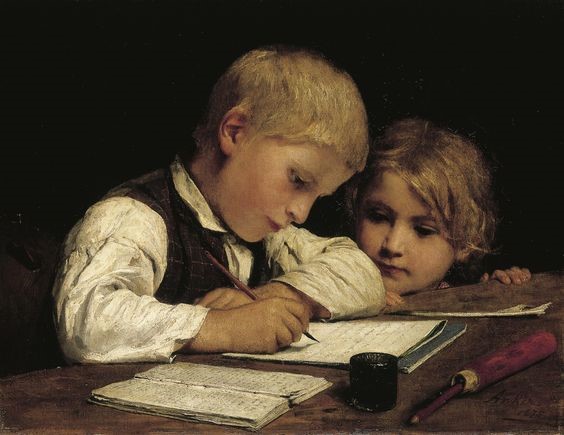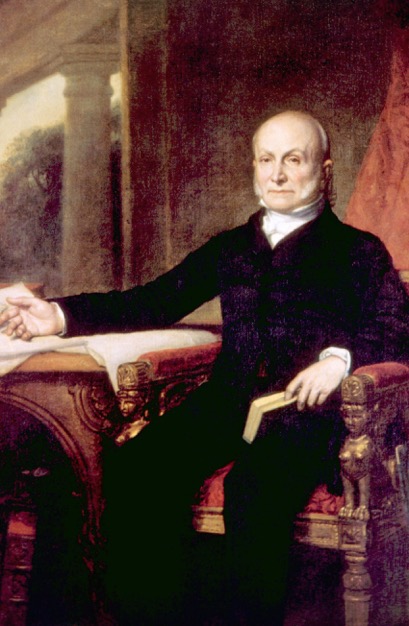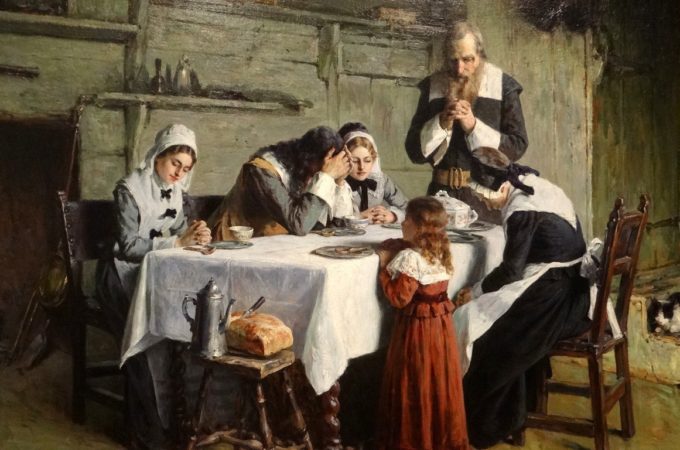The first sphere of government in colonial America was the home. Home is where the foundation of character is laid and where self-government should first be learned and practiced. Man’s capacity to govern himself is in direct proportion to his relationship with Jesus Christ and obedience to His Word. Childhood is the optimum time to receive Christ as Savior and when the principles of Christianity are most effectually impressed upon the mind. Much of human character and felicity depend upon the education of the young mind for both the development of its faculties and the application of truth to choices and decisions.
So it was in the colonial home where fathers and mothers taught and modeled Christian character and established home habits of civility, morality, frugality, perseverance in well doing, self-governance, and the love of learning. The Bible was their primer for character education and the Book from which they taught their children how to read and reason with truth. Reverend Phillips, writing in 1869, described the role of the colonial American home with regard to forming the character and conscience necessary for Christian civil governance:
The Christian home has its influence also upon the state. It forms the citizen, lays the foundation for civil and political character … We owe to the family, therefore, what we are as a nation as well as individuals. The principle of home government is love—love ruling according to law. It is similar in its fundamentals to the government of the state and the church. It involves the legislative, judicial, and executive functions; its elements are law, authority, obedience, and penalties. The basis of its laws is the Word of God.[1]
John and Abigail Adams modeled a remarkable home life
John Adams, second President of the United States, and his wife Abigail were careful parents. They lived on a farm in Braintree, Massachusetts and contributed significantly to the founding and constitutional eras of the United States. They left us a remarkable record through their lifetime correspondence of over 1,100 letters. Abigail was the daughter of a colonial New England pastor. She was home educated and spent hours reading the books in her father’s library. She, in turn, home educated their five children. Their first son, John Quincy, served America for more than fifty years. He accepted his first diplomatic appointment at the age of fourteen as secretary to the U.S. minister to Russia. His first instruction was in the Word of God. So well did young Johnny commit the Word to his heart and mind that it became for him both compass and anchor in his long life of public service.
 Johnny was a patriot by the age of seven. While his father served as a statesman in Philadelphia, he watched his mother melt her pewter utensils to make bullets for the Continental soldiers. He served his mother on their Braintree farm, and at the age of ten, held a post-riding job delivering mail. It was at this age that John Quincy began his habit of writing. He is known for his personal diary that he maintained all his life, which comprises over 50 volumes.
Johnny was a patriot by the age of seven. While his father served as a statesman in Philadelphia, he watched his mother melt her pewter utensils to make bullets for the Continental soldiers. He served his mother on their Braintree farm, and at the age of ten, held a post-riding job delivering mail. It was at this age that John Quincy began his habit of writing. He is known for his personal diary that he maintained all his life, which comprises over 50 volumes.
His father, John Adams, never negated his responsibility to educate his children, even though he spent long months and even years away from New England in service to the new nation. In a 1778 letter to Abigail, he penned,
Education makes a greater difference between man and man, than nature has made between man and brute. The virtues and powers to which men may be trained by early education and constant discipline are truly sublime and astonishing. … It should be your care therefore, and mine, to elevate the minds of our children, and exalt their courage, to accelerate and animate their industry and activity, to excite in them an habitual contempt of meanness, abhorrence of injustice and inhumanity, and an ambition to excel in every capacity, faculty, and virtue. If we suffer their minds to grovel and creep in infancy, they will grovel and creep all their lives.[2]
Ten years at home, under his beloved mother’s tutelage, was all young Johnny would have. At the age of eleven, he traveled to France with his father to serve him in his diplomatic role. However, Abigail continued her education of Johnny through her letters. A portion of a 1778 letter exhorts,
Improve your understanding by acquiring useful knowledge and virtue, such as will render you an ornament to society, an honor to your country, and a blessing to your parents. Great learning and superior abilities, should you ever possess them, will be of little value and small estimation, unless virtue, honor, truth, and integrity are added to them. Adhere to those religious sentiments and principles which were early instilled into your mind, and remember, that you are accountable to your Maker for all your words and actions.[3]
John Quincy Adams was the only president to continue public service after his term in office!
As a young adult, John Quincy served as a diplomat in various European nations, as Secretary of State for President Monroe, and as a Congressman from Massachusetts. He was then elected the sixth President of the United States. After his four-year term as president, Adams returned home and ran for a seat in Congress. He is one of only two presidents to continue public service after his term in office, which he did for eighteen years until his death. (William Howard Taft served as President for a four-year term followed by nine years as the tenth Chief Justice of the US Supreme Court.)
He made many contributions as a legislator, not the least of which was his stand against slavery.
 In 1811, John Quincy revealed his concern for the character of the next generation. He wrote a series of letters to his own son at boarding school on “The Bible and Its Teachings.” A portion of one of these letters follows:
In 1811, John Quincy revealed his concern for the character of the next generation. He wrote a series of letters to his own son at boarding school on “The Bible and Its Teachings.” A portion of one of these letters follows:
I advise you, my son, in whatever you read, and most of all in reading the Bible, to remember that it is for the purpose of making you wiser and more virtuous. I have myself, for many years, made it a practice to read through the Bible once every year. I have always endeavored to read it with the same spirit and temper of mind, which I now recommend to you: that I, with the intention and desire that it may contribute to my advancement in wisdom and virtue. … My custom is, to read four or five chapters every morning, immediately after rising from my bed. It employs about an hour of my time, and seems to me the most suitable manner of beginning the day …
You have already come to that age to know the difference between right and wrong, and you know some of your duties, and the obligations you are under, to become acquainted with them all. It is in the Bible, you must learn them, and from the Bible how to practice them. Those duties are to God, to your fellow-creatures, and to yourself. “Thou shalt love the Lord thy God, with all thy heart, and with all they soul, and with all thy mind, and with all thy strength, and thy neighbor as thyself.” …
You will perceive that I have spoken of duties to yourself, distinct from those to God and to your fellow-creatures; while Jesus Christ speaks only of two commandments. The reason is, because Christ, and the commandments repeated by him, consider self-love as so implanted in the heart of every man by the law of his nature, that it requires no commandment to establish its influence over the heart; and so great do they know its power to be, that they demand no other measure for the love of our neighbor, than that which they know we shall have for ourselves as well as to them, and they are all to be learned in equal perfection by our searching the Scriptures.[4]
Colonial education successfully equipped five generations to think and reason justly with the revelation of God’s Word for application in every sphere of life. It produced the Christian character and conscience required for governing the first Christian constitutional republic.
- Elizabeth Youmans
[1] Slater, R. (1965). Teaching and Learning America’s Christian History: The Principle Approach. Foundation for American Christian Education, p. 19.
[2] Hall, V., compiler. (1976). The Christian History of the American Revolution: Consider and Ponder. Foundation for American Christian Education, p. 606.
[3] Ibid, p. 607
[4] Ibid, p. 615.






